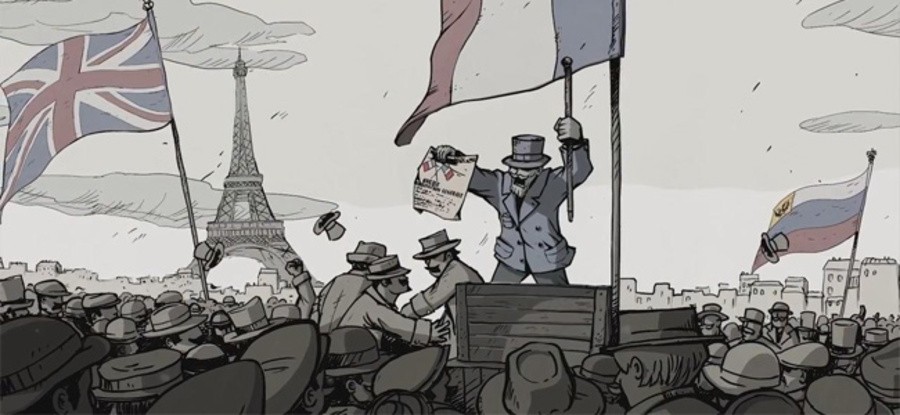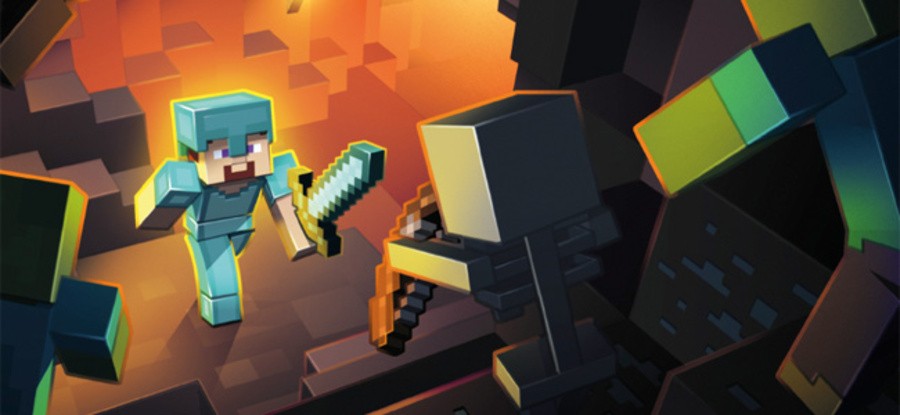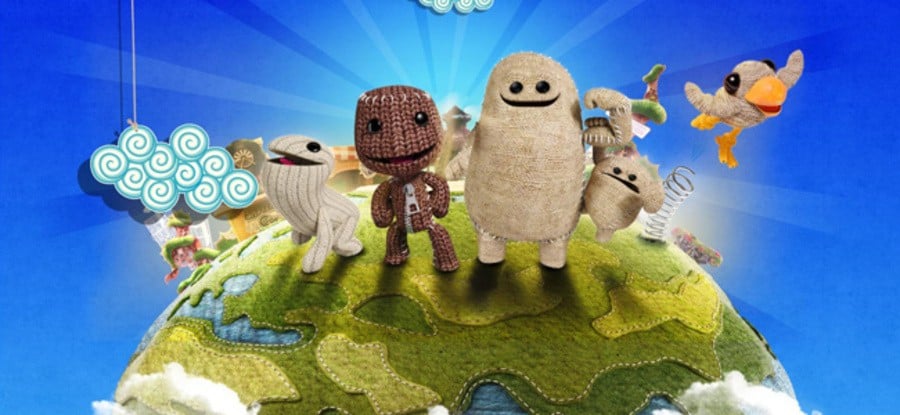
Edutainment is a dirty word. We typically associate the embarrassing portmanteau with low budget trash such as Mario Teaches Typing and Donkey Kong Jr. Math – or worse still, the borderline archaic Flash and Shockwave minigames that litter government websites. However, are we letting bad examples impede the true potential of educational games – and should the industry be doing more to challenge us at an academic level from time to time?
We’re certainly not suggesting that Activision should add spelling tests to Call of Duty’s lobby screens in order to reward fledgling wordsmiths with XP boosts, but as our beloved medium matures, we reckon that legitimate learning deserves a bigger place. Blockbuster brands such as Battlefield and Batman may covet Hollywood spectacle ahead of classroom conundrums, but that doesn’t necessarily have to apply to every game that we sit down to play.

And while you may think that we’re calling for an increase in studious software such as Smart As and Art Academy, that’s not actually the case. Ubisoft’s stunning side-scrolling adventure Valiant Hearts: The Great War may be a puzzle platformer at heart, but beneath its astonishing hand-drawn UbiArt assets is a real effort from the French firm’s Montpellier studio to educate players on some of the actual events that defined the often forgotten conflict of World War I.
That its intentions are wrapped in a relatable tale with likeable characters and entertaining mechanics makes its impact all the more profound, but it’s a format that’s generally unique to video games. You can certainly glean information from television documentaries, theatrical reconstructions, and museums, but embedding yourself in the heart of a scenario is what sets this industry apart – and makes it arguably the greatest of learning aides.

Granted, stacking mine carts in order to dismantle chlorine bombs may be a stretch in the abovementioned indie-esque adventure, but not every action has to be accurate to get a message across. As someone that pursued an academic path favouring the future rather than the past, this editor was surprised to learn that chemical warfare was even common in the early 20th century. It may be a ‘duh’ moment for many of you, but that’s an example of the power that games can have.
And that learning doesn’t have to be limited to historical trivia or even scientific facts, as games also have the power to cultivate our creativity in a way that few other entertainment industries do. Sony’s flagship family franchise LittleBigPlanet teaches the basics of computer programming and engineering in a format that’s logical and inviting, while commercial juggernaut Minecraft exposes the limitless boundaries of the imagination in a manner reminiscent of LEGO and other such construction-based brands.

The one common thread linking the intentionally employed examples above is that they’re all good games first – and solid educational tools second. If the industry is ever going to be successful in the academic space, then developers mustn’t forget what makes an enjoyable experience along the way. Augmented reality affair Wonderbook may skew towards a younger audience, but it’s lacked the staying power of some of the aforementioned examples because the gameplay quality isn’t quite there.
It’s a balance that’s down to developers to strike, but progress is being made. For years scholars have debated the merits attached to the gamification of education, but perhaps we’ve been looking at things in the wrong way. Indeed, it strikes us that the magic mostly occurs when a little learning is added to an already excellent game. The big question is: can we overcome the edutainment stigma and allow that to happen a little more often?
Would you like to see more titles include educational aspects, or are you fine with the industry as it is? Do you think that developers should be doing more to leverage the unique academic opportunities that the game industry offers, or do you worry that there’s very little commercial value in this path? Sit your exam in the comments section below.
Should more games try to teach us something? (17 votes)
- Yes, I like the idea of learning while I play
- Hmm, I’m not sure 0%
- No, I play games for fun and nothing more
Please login to vote in this poll.





Comments 14
As long as it's fun and it entertains then it can educate as well.
This article really is a breath of fresh air! It's great thinking pieces like this that sets Push Square apart. Some very nice, thought provoking ideas - keep up the good work.
As long as it fits within the context of the game, why not? People learn in lots of different ways, and directly taking part in something is a great way to wrap your head around it.
I mean, Dynasty Warriors has taught me most of what I know about feudal China!
@Shaolin Thanks for reading and kind comments.
I think it's a highly underused concept. See, I'm self employed and always on a time-budget. I like to do several things at once, while I work, I watch documentaries on my Vita, so I learn something while I work.
Now imagine doing a questionaire in Mortal Kombat about History to finish off your opponent, look at Rocksmith that actually teaches you playing the guitar. If the Xbox and Kinect wouldn't suck, it could be used to take a dancing course. A real one, not that "flapping around with your arms, wiggle wiggle" thing. Or learning how to play Tennis or Golf correctly.... etc... the possibilities are endless. I'd love to learn something while doing my favorite hobby.
Bring us deep and rich tactical turn based strategy games, littered with historical information, again, so much possibilities, so much underutilized...
@Scollurio I'm not sure history questionnaires in Mortal Kombat would work, but the other examples are exactly what I'm talking about.
Hehe yeah Sammy it might have been exaggerated, a bit... But yeah we're talking about the same thing!
"Logical and inviting?" Hahahahahahahahahahahahahahahahahahahahahahahahahahahahaha yeah right
One of the best games I ever played where I thought my kids were learing math was Mushroom Wars. 1/4, 1/2, 3/4, 1 was just a genius use of buttons, and the game is super fast on hard, Brain Age be damn. Really needs a sequel.
And any stragey game is a learning device, my kid learned to multiply by 25 playing PvZ.
And we read a book in B&N yesterday, who knew Benki and Genji wete actual warriors and friends in real life? .
I don't think it would be a problem as long as it's not the focal point of a game. You said it best; it needs to be a great game first and educational second. I liked how Persona 4 had you taking finals because it was part of the story line. It really added to immersion because I really wanted a good grade. That's the kind of stuff that works and it's rare to find a game that gets it right
@ObviouslyAdachi Well, it is. Not saying it's easy - but it's more approachable than actual programming languages, etc. I know what you mean, though - I've always found the tutorials to be poor in LBP.
It depends on what they are teaching. I dont want any game trying to teach politics of any kind. I find some games are already kind of pushing a certain view and it really gets under my skin. Politics piss me off. If my games start pissing me off then I will have to stop playing them.games should be fun period.
Even history can be divisive if one side is being vilified or glorified in certain events that are not so cut and dry as say the nazis comitting genicide.
That episode Extra Credits did on Tangential Learning through gaming pretty much says it all. This medium has too much value in its interactivity to not use for a certain amount of real-world knowledge building.
Show Comments
Leave A Comment
Hold on there, you need to login to post a comment...